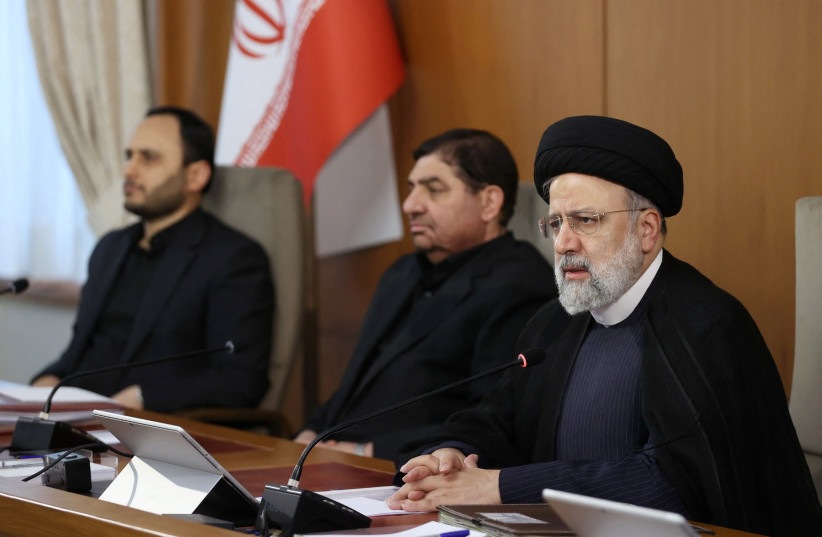Iranian President Ibrahim Raisi spoke to Iraq’s Prime Minister Mohammed Shia’ Al Sudani on Wednesday evening. Raisi said that Israel would pay a “heavy price” for an airstrike in Damascus, for which Tehran blames Jerusalem. He discussed the “martyrdom” of Maj.-Gen. Mohammed Reza Zahedi, an IRGC leader, was killed in the Syrian capital.
Sudani told the Iranians he wanted to see progress in Iran-Iraq strategic relations. Tehran pressed Baghdad to condemn the airstrike in Damascus, which Iraq has complied with.
Iraq is a key partner of Iran, which views its western neighbor as its “near abroad,” empowering militias in Iraq to threaten Israel, the US, and the region. Iraq, therefore, operates as a kind of Iranian colony these days, even though it also tries to be an independently functioning state.
Iran and Iraq operate together
For instance, Iranian Tasnim media said that Iraqi-based militias had carried out a drone attack targeting Israel, one of several attacks that these militias have claimed in the last week.
“Since the attack of the Israeli regime army on the Gaza Strip, the Islamic resistance of Iraq and Lebanon, in solidarity with the resistance and the Palestinian people in the Gaza Strip, have fired missiles, rockets, drones, and cannon balls towards the occupied lands,” Tansim said, adding that “The war against Gaza has been going on for six months.”
Iran also announced the “farewell” plans for the funerals of the men killed in the Damascus airstrike. At Iran’s Fars News, a report says that the Iranian president has also sketched out how he thinks the war in Gaza will reshape the region.

Raisi said the “Al-Aqsa Storm” attack that Hamas carried out against Israel “was a turning point in the history of the Palestinian cause, adding that the region and the world will not be the same after the October 7 military operation which resulted in [the] death of some 1,200 Israelis [sic].” (There were also many victims of the massacre who were foreign nationals.)
This shows the depth of Iranian support for Hamas and how it is exploiting the war for its own interests. Iran is seeking to turn Iraq into a base for attacks. Iranian-backed militias in Iraq have also targeted US troops in Jordan, killing three in January.
Tehran is also using Quds (Jerusalem) Day, a day devoted to backing Palestinians, to inflame tensions in the region. A message by Iran has been communicated to Iraq, Syria, Lebanon, and Yemen, according to Iran’s pro-government Fars News.
“Thanks to the valor, faith, and courage of the Palestinians in Al-Aqsa Storm, it has become clear to everyone today that the Zionist regime’s abode is more fragile than a spider web, and the world is witnessing the fulfillment of this divine promise,” Raisi said.
The Iranian statements and connection to Iraq illustrate its possible next moves. It has sought to increase the role of Iraqi militias in attacks on Israel. Iran has also been considering whether to continue to carry out attacks on US forces using those militias. After the January 27 strike on US soldiers in Jordan, the Islamic Republic has been biding its time.
Raisi’s statements reflect Tehran's current thinking that October 7 has fundamentally transformed the region. Iranian escalation after the Damascus airstrike is one option for the region. Iran's talks with Baghdad also show that it is working toward a full-court press in the region. Iran wants to use the end of Ramadan to its benefit. It also wants to ensure all its ducks are in order before escalation begins.
